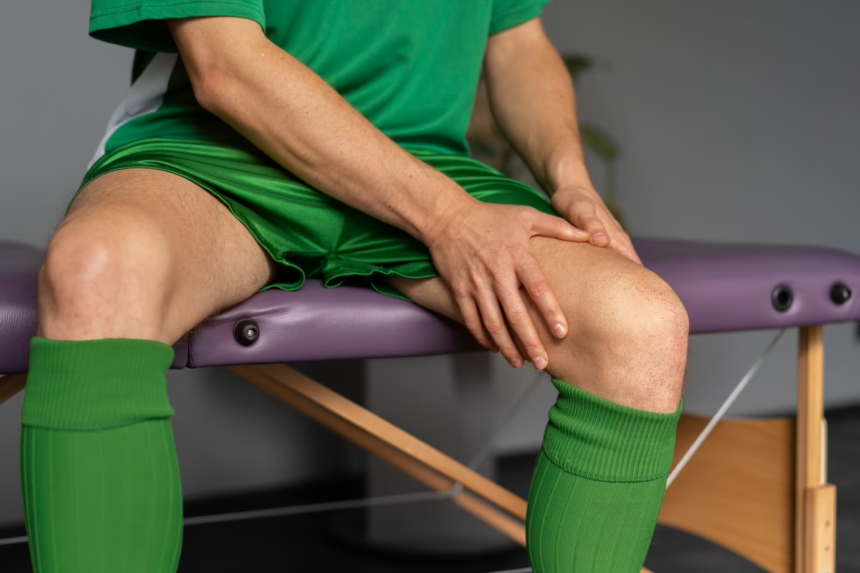Restful sleep is essential for our overall well-being, allowing our bodies and minds to rejuvenate and prepare for the day ahead. However, many individuals in South Africa struggle with restless sleep and nocturnal leg cramps, which can significantly disrupt the quality of their sleep and impact their daily functioning. Understanding the causes and implementing strategies to address these sleep disturbances is crucial for promoting better sleep and enhancing the overall health of individuals across the country.
Restless Sleep:
Restless sleep, also known as sleep fragmentation or disrupted sleep, refers to frequent awakenings or movements during the night, leading to poor sleep quality and daytime fatigue. There are several potential causes of restless sleep, including:
- Sleep Disorders: Conditions such as sleep apnea, restless leg syndrome (RLS), or periodic limb movement disorder (PLMD) can contribute to restless sleep. These disorders often manifest with involuntary leg movements, twitching, or sensations in the limbs, leading to disrupted sleep patterns.
- Stress and Anxiety: High levels of stress or anxiety can make it difficult to relax and fall asleep. Racing thoughts, worries, or feelings of restlessness can keep individuals awake or lead to frequent awakenings during the night.
- Poor Sleep Environment: Uncomfortable bedding, excessive noise, light pollution, or an uncomfortable sleep environment can contribute to restless sleep. Creating a calm and relaxing sleep environment is important for promoting better sleep quality.
Addressing Restless Sleep:
- Seek Professional Evaluation: If restless sleep is a persistent issue, it is advisable to seek medical evaluation. Healthcare professionals specializing in sleep medicine can conduct a thorough assessment, including a sleep study if necessary, to identify any underlying sleep disorders contributing to restless sleep.
- Practice Good Sleep Hygiene: Establishing a regular sleep routine, maintaining a consistent sleep schedule, and practicing good sleep hygiene can help improve sleep quality. This includes avoiding stimulating activities or electronic devices before bed, creating a comfortable sleep environment, and engaging in relaxation techniques such as deep breathing or meditation.
- Manage Stress and Anxiety: Implementing stress management techniques, such as engaging in regular physical exercise, practicing mindfulness or relaxation exercises, and seeking support from mental health professionals, can help reduce stress and anxiety levels, promoting better sleep.
- Treat Underlying Sleep Disorders: If a sleep disorder such as sleep apnea, RLS, or PLMD is diagnosed, appropriate treatment options can be explored. This may include continuous positive airway pressure (CPAP) therapy for sleep apnea or medications for RLS or PLMD, as prescribed by healthcare professionals.
Nocturnal Leg Cramps:
Nocturnal leg cramps are sudden, painful contractions of the muscles in the legs that occur during sleep. These cramps can jolt individuals awake and cause significant discomfort. While the exact cause of nocturnal leg cramps is not fully understood, several factors can contribute to their occurrence, including:
- Dehydration: Inadequate fluid intake or excessive sweating can lead to dehydration, which may increase the likelihood of leg cramps during sleep.
- Electrolyte Imbalance: Imbalances in electrolytes such as calcium, potassium, or magnesium can trigger leg cramps. These imbalances can occur due to factors such as certain medications, inadequate dietary intake, or medical conditions.
- Muscle Fatigue or Overexertion: Engaging in strenuous physical activity or prolonged standing or sitting can lead to muscle fatigue, increasing the risk of leg cramps during sleep.
Addressing Nocturnal Leg Cramps:
- Stay Hydrated: Ensure adequate fluid intake throughout the day to prevent dehydration, especially in hot climates or during periods of increased physical activity.
- Maintain Proper Electrolyte Balance: Consume a well-balanced diet rich in foods containing calcium, potassium, and magnesium. If necessary, healthcare professionals can provide guidance on appropriate supplementation.
- Stretching and Gentle Exercises: Perform regular stretching exercises, particularly targeting the muscles of the legs, before bedtime. Gentle exercises can help improve muscle flexibility and reduce the occurrence of leg cramps.
- Heat Application: Applying a warm compress or taking a warm bath before bed may help relax the muscles and alleviate leg cramp symptoms.
- Medication Review: If leg cramps persist or significantly impact sleep quality, consulting healthcare professionals to review medications and discuss potential alternatives or adjustments is advisable.
In conclusion, restless sleep and nocturnal leg cramps can significantly disrupt the sleep quality of individuals in South Africa. By understanding the potential causes and implementing appropriate strategies, such as seeking professional evaluation, practicing good sleep hygiene, managing stress and anxiety, addressing underlying sleep disorders, staying hydrated, maintaining electrolyte balance, and engaging in stretching exercises, individuals can work towards achieving a more restful and rejuvenating sleep. Prioritizing sleep health is essential for overall well-being and ensuring individuals can wake up feeling refreshed and ready to take on the day.










